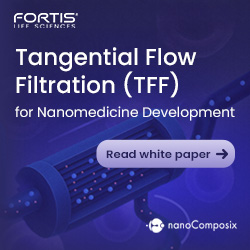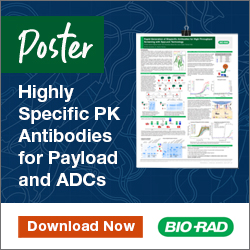Vico Therapeutics Announces Positive Interim Phase 1/2a Clinical Data of VO659 in Treatment of Huntington’s Disease
Vico Therapeutics B.V. recently announced new positive interim data in Huntington’s disease (HD) from the ongoing Phase 1/2a clinical trial of VO659, an investigational allele-preferential antisense oligonucleotide (ASO) therapy. Results were highlighted in an oral presentation at the European Huntington’s Disease Network’s EHDN & Enroll-HD 2024 meeting September 13, 2024.
This is the first clinical data reported of VO659, which is designed to target the CAG repeat expansion that causes all nine known polyglutamine diseases, including HD as well as spinocerebellar ataxia type 1 (SCA1) and type 3 (SCA3). VO659 has a unique allele-preferential mechanism of action that targets expanded CAG repeats in the mutant mRNA transcript and inhibits mRNA translation leading to a reduction of mutant protein, with the potential to halt or slow disease progression. VO659 is the only clinical-stage program that directly targets the underlying CAG repeat expansion that causes HD.
The Phase 1/2a clinical trial is a multi-center, open-label, multiple ascending dose study designed to assess the safety and tolerability of four doses of VO659 administered intrathecally every four weeks in participants with early manifest HD, or mild to moderate SCA1 or SCA3. Exploratory endpoints include the assessment of pharmacodynamic (PD) biomarkers (mHTT, mATXN3, and Nf-L protein) in cerebrospinal fluid (CSF), pharmacokinetics in CSF and plasma, and clinical outcome measures. The interim analysis provides a look at available safety, tolerability and PD data for HD participants in the 40 mg cohort through at least day 85 of the study.
The Phase 1/2a trial interim data presented at the EHDN meeting demonstrated:
- A mean reduction of 28% in CSF mutant huntingtin protein (mHTT) in treated HD participants at day 85 compared to baseline with an immediate effect observed after the first dose at day 29
- No sustained increase or decrease in Nf-L protein in CSF across treated participants at day 85 compared to baseline
- VO659 appears generally safe and well tolerated at the 40 mg dose level in treated HD patients through the available clinical follow-up period
- VO659 has a long half-life, indicating the potential for infrequent dosing estimated at 1-2 times per year
“We are very pleased to announce these first data from our Phase 1/2a clinical trial of VO659 in participants living with HD,” said Micah Mackison, Chief Executive Officer at Vico. “It is highly encouraging that we saw immediate reductions in CSF mHTT and no changes in Nf-L protein, two key biomarkers in HD, in treated patients over the available follow-up period. Given VO659’s long anticipated half-life, there is clear potential for this therapy to have an infrequent dosing schedule, and we look forward to exploring this further in clinical trials. These data are a significant milestone for our team and for the HD community that so desperately needs treatment options, and we look forward to continuing assessments from the trial and advancing VO659 as quickly as possible for patients and their families.”
These interim data build on preclinical data of VO659 demonstrating potent target engagement across multiple disease models. Preclinical research showed significant and dose-dependent reductions of mHTT and improvement in motor function in vivo in disease mouse models of HD and allele-preferential reductions of mHTT in vitro in HD patient cell models.
“VO659’s allele-preferential action and direct targeting of the CAG repeat expansion that causes HD is a unique approach to treating this disease with a promising future for the HD community,” added Scott Schobel, MD, Chief Medical Officer at Vico. “The Phase 1/2a interim clinical data reinforce the potent, targeted nature of VO659 and add to a growing body of evidence supporting VO659’s advancement in the clinic for HD as well as its broad potential applications for all CAG repeat expansion diseases.”
The Phase 1/2a trial remains ongoing and Vico plans to meet with regulators later this year to discuss the optimal path forward for the VO659 program. The company plans to provide an update from the SCA1 and SCA3 patient cohorts at a future scientific meeting.
Huntington’s disease (HD) is a rare genetic, progressive neurodegenerative disorder characterized by movement disorders, cognitive impairment, and psychiatric manifestations including depression and psychosis. The disease varies in terms of age of onset, typically starting in mid-adulthood, and it is ultimately fatal. The disease is caused by a CAG trinucleotide repeat expansion in the coding region of exon 1 of the huntingtin (HTT) gene, which results in production of mutant HTT protein (mHTT) with an elongated polyglutamine (polyQ) stretch at its N-terminus. This expanded polyQ stretch confers a toxic gain-of-function to mutant protein forms, ultimately resulting in widespread neuronal death. Currently available therapies for HD focus on alleviating some of the movement and psychiatric symptoms, with a significant unmet need for disease-modifying therapies.
VO659 is designed to suppress mHTT in an allele-preferential manner and slow or halt disease progression. VO659 was granted both FDA and EMA Orphan Drug designation for the treatment of HD.
Vico Therapeutics is a clinical-stage genetic medicines company developing antisense oligonucleotide (ASO) RNA modulating therapies for patients with severe neurological diseases. Our lead product candidate, VO659, is currently in Phase 1/2a clinical development for the treatment of spinocerebellar ataxia types 1 and 3 and Huntington’s disease and is the only ASO in the clinic that targets the underlying CAG repeat expansions that cause all nine known polyglutamine diseases. Vico’s research platform designs fit-for-purpose ASOs by applying precision chemistry with mechanisms of action ideally suited to target genetic neurological diseases. For more information, visit www.vicotx.com.
Total Page Views: 764














